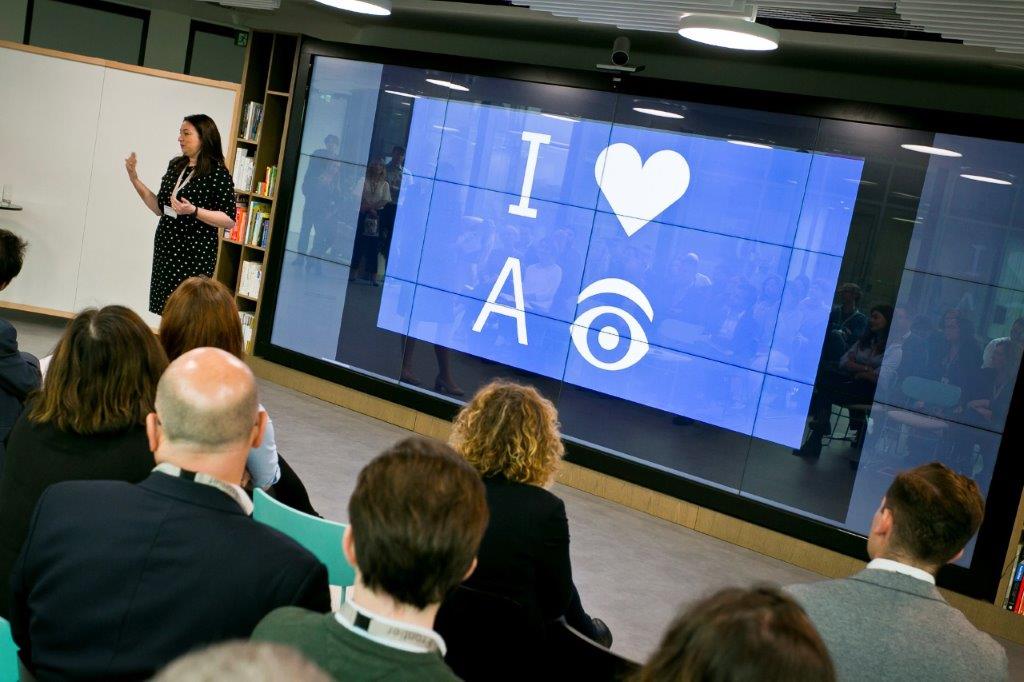As we continue to adopt artificial intelligence (AI) at the workplace, how do we ensure these technologies bring the most value for businesses, while protecting employees? This was the key concern for speakers at the Digital Leadership Forum event “Building the Workforce of the Future”, hosted by PwC in London on 17 May.
The workplace of the future
In addition to conventional macroeconomic factors and shifts in demographics and urbanisation, technological innovations continue to revolutionise the workplace. According to Jeremy Waite, Chief Customer Officer at IBM, 90% of the world’s data was created in the last 12 months. As this trend in growth continues, organisations will face challenges in handling such vast amounts of data and lack a proper understanding of AI to leverage the technology. Indeed, four out of five CTOs are feeling overwhelmed and unprepared for AI adoption, according to a recent IBM survey. For Waite, AI will facilitate decision-making for both businesses and customers, and C-Suite executives must jump on the moving bandwagon and harness the power of AI.
Alastair Woods, Partner at PwC, recommended that in order to survive in the new digital age, organisations must take the leap and embrace these changes. For example, leveraging cloud computing and automation can replace cost-heavy infrastructure and operation processes, previously incurring heavy burdens for new companies. This not only promotes new technologies but also enables faster and cheaper market entry for start-ups competing with tech giants. In addition, employers should create a tech-savvy culture across all departments, invest in human skills, and create flexible work environments that appeal to a new generation of professionals.
The workforce of the future
Inevitably, this organisational transformation gives rise to new employee behaviours and expectations. Nine-to-five jobs continue to diminish in favour of part-time, freelance, and job-share positions. Employees now travel more, working multiple jobs and demanding “borderless” contracts. For Callum Adamson, CEO and Founder of Distributed, today’s workforce is the product of a shift in balance of power from employers to employees. In addition to traditional expectations of fair treatment, professional development, today’s workforce also demands pay transparency, diversity, equality, flexibility, wellbeing incentives, and social responsibility. As a result, companies are appealing to their staff by promoting emotionally aware cultures, where gratitude for quality work is expressed in the form of gifts, payments, or promotions relative to the standard produced.
These new dynamics will benefit from AI as it transforms human resources practices, employee engagement and internal comms. IBM’s Silvia Cambié presented IBM tools, such as tone analysers, bots and e-learning apps, as prime examples of technologies enhancing internal processes. The tone analyser, which examines sentiments of written communications, allows employees and customer service departments to understand, revise and tailor the tone of their responses. AI-power bots enable employees to ask anonymous questions to management when they would otherwise be reluctant to do so, such as performance evaluation, complaints, or even health-related queries. E-learning platforms offer “learning on demand” and tailoring courses based on individual objectives and previous selections. However, AI outcomes depend on the quality of data sets, removing bias and associated ethical risks. To tackle these challenges, Silvia Cambié advocated for diversity in the AI industry and recommended companies to demand user feedback to finetune systems and mitigate bias.
The role of government
As with any technology, industry best-practice and government policy must adapt to innovation. The final discussion of the day on the role of government and AI was moderated by Access Partnership’s Chief BD Officer Matthew McDermott. Increased understanding and trust in the use of AI technologies can be facilitated by adhering to the principles of fairness, accuracy, responsibility and explainability (trust and understandability of AI for consumers). Sound data innovation policy, cybersecurity and privacy protection, investment in research and development and skills training will be crucial to develop an AI-equipped workplace. These objectives can be achieved through collaborations between governments and industry, and multinationals and start-ups. Combining resources across the market will generate a greater pool of talent.
But, to ensure the sustainable evolution of the workplace of the future, policy-makers also need to implement policies protecting employees (healthcare, insurance, retirement benefits), as well as incentives for companies to invest in people and innovative technologies.
Ultimately, this forum confirmed the awesome impact of AI on lives and jobs, as well as the responsibilities of both public and private actors in enabling its adoption and leveraging it to respond to future challenges in the workforce.

